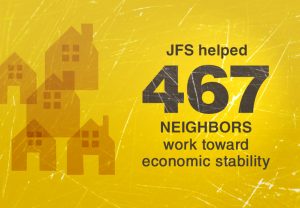 Homelessness in the Puget Sound region remains front and center. Eleven years ago, King County made a promise to end homelessness, but according to the 2016 One Night Count, 4,505 people spent the night sleeping outside. Homelessness in the Puget Sound region is a growing, not a declining, concern.
Homelessness in the Puget Sound region remains front and center. Eleven years ago, King County made a promise to end homelessness, but according to the 2016 One Night Count, 4,505 people spent the night sleeping outside. Homelessness in the Puget Sound region is a growing, not a declining, concern.
With the economy booming and population increasing, rents are rising and there are a decreasing number of affordable rentals available. There is also a scarcity of subsidized housing units. Even when people qualify as low- and very low-income, they encounter wait lists that are measured in years, not months.
And as the rental market changes, those at the bottom of the ladder are increasingly left behind, leading to the need for more emergency assistance. A recent report from the National Alliance to End Homelessness explains this pattern.
JFS Emergency Services focuses on providing flexible cash assistance to prevent eviction. Funds may be used to keep current on rent or to deal with other expenses – like medical, utilities or transportation – that are making it impossible for a tenant to make rent. JFS has a very successful and longstanding partnership with H2R and Temple Beth Am in which funds for deposits and other move-in costs are available for families experiencing homelessness in the Puget Sound region so they can move into stable housing.
As our region seeks solutions to this challenge, there are interesting and diverse approaches to consider from around the country. Salt Lake City has reduced chronic homelessness by an astonishing 91 percent with a housing first focus. Similarly, the Domestic Violence Housing First project here in our region has been proven to boost housing stability for individuals and families affected by DV.
One Oakland man is putting his construction skills to good use by building small structures out of reclaimed trash. He donates these shelters to people living on the street. This video showcases the impact even one person can make.
In Washington DC and Los Angeles, developers are focusing on creating communities with calm, comfortable living spaces. Social service providers, civic leaders and developers have all found that people with mental illness, addiction, post-traumatic stress disorder and other issues that contributed to them becoming homeless in the first place will do better — and even thrive — when they live somewhere they feel safe and part of a community.
Want to help those who are most vulnerable in our community? Here are some DIY ideas. For more opportunities contact Jane Deer-Hileman, (206) 861-3155.
 By Leslie Sugiura
By Leslie Sugiura
Savvy cook, extreme clam digger, urban gardener and mom to Stella the dog are just a few of the titles Leslie Sugiura keeps in rotation. She’s also the Director of Special Events for JFS where she spearheads the annual Community of Caring Luncheon.



